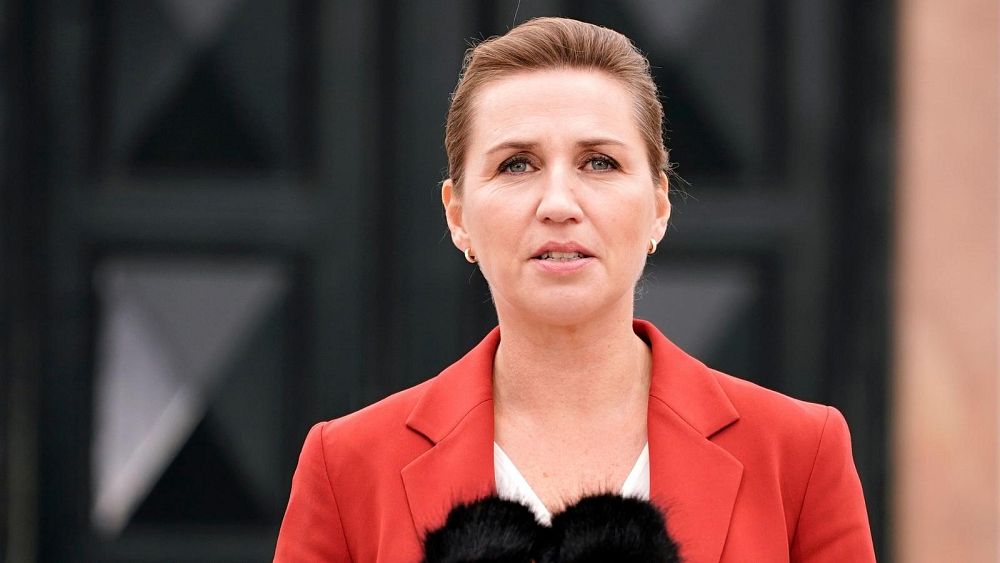Denmark calls snap general election after government support dwindles

Denmark’s prime minister was forced into the unusual situation of calling a snap general election Wednesday, after falling out of favour with a parliamentary ally.
Mette Frederiksen, who has headed the Social Democratic minority government since June 2019, said the poll would be on 1 November, seven months earlier than planned.
Frederiksen has seen her popularity dwindle in recent weeks due to her role in a pandemic-era decision to cull Denmark’s entire captive mink population.
In June, a Danish Parliament-appointed commission harshly criticised Frederiksen’s government for its decision to order the killing of millions of healthy mink at the height of the coronavirus pandemic to protect humans from a mutation of the virus.
That saw one of the government’s centre-left allies, the Social Liberal Party, threaten a confidence vote unless Frederiksen called an early election.
“It is a rather unusual situation to be forced to call an election like this, but prime ministers always try to sort of pre-empt a motion of no confidence, they don’t want to be voted down in parliament,” Rune Stubager, professor of political science at Denmark’s Aarhus University, told Euronews.
“Normally a government isn’t forced into calling an election, you’d have to go back to the 1970s or 1980s when there was more drama and more frequent elections, but we haven’t seen anything like this in the past 30 years or so.”
The election will select members of the 179-seat Folketing, or parliament, and polls show the centre-left bloc is neck-and-neck with the centre-right opposition, which includes parties that want to reduce immigration.
“We want a broad government with parties on both sides of the political middle,” Frederiksen said as she announced the elections. She admitted that “it is, of course, peculiar to have a general election in the middle of an international crisis”.
Frederiksen has recently been speaking openly about governing with some of the parties that are part of the centre-right opposition.
“The PM aired this idea first in her Constitution Day speech on 5 June, and now today it has been elevated to ‘Plan A'”, said Prof Stubager.
“Apart from the Social Liberals, and the Moderates, there aren’t any other parties who want to be a part of it. Certainly, the two biggest parties that would be needed to form such a broad coalition government, the Liberals and Conservatives, they are very strong in saying no,” he added.
What are some of the reasons for the snap election?
Mette Frederiksen became Denmark’s youngest prime minister when she took office at age 41 in 2019.
She reached out to other political parties, including the opposition, to help steer the Scandinavian country through the COVID-19 pandemic and later teamed up with the opposition to hike Danish defence spending in the wake of the March 2022 invasion of Ukraine by Russia.
She also is a staunch supporter of Ukrainian President Volodymyr Zelenskyy.
Frederiksen said that a broad government with some of the parties in the centre-right opposition “will get us through uncertain times”.
After the report on the mink culling was published, one of the government’s centre-left allies, the Social Liberal Party, stood up against Frederiksen and criticised her for her handling of the mink issue.
That party, which holds 14 seats in the Folketing, had threatened to seek a confidence vote unless Frederiksen called early elections before parliament reopens after the summer recess on 6 October. However, the Social Liberal Party has said it will support Frederiksen in any new government and not join the centre-right opposition.
Frederiksen has insisted that she didn’t know the culling decision was unlawful, saying it was “based on a very serious risk assessment.” A law was passed shortly after to make it legal.
The culling of up to 17 million animals was ordered after a mutated version of the coronavirus was found in farms in northern Denmark and infected 11 people. Although there was no evidence that the mutated version was more dangerous, the government said it moved proactively.
Denmark was one of the world’s main mink fur exporters, producing an estimated 17 million furs per year. Kopenhagen Fur, a cooperative of 1,500 Danish breeders, accounts for 40% of global mink production. Most of its exports went to China and Hong Kong.
Denmark calls snap general election after government support dwindles
Source: Reporters View PH
No comments